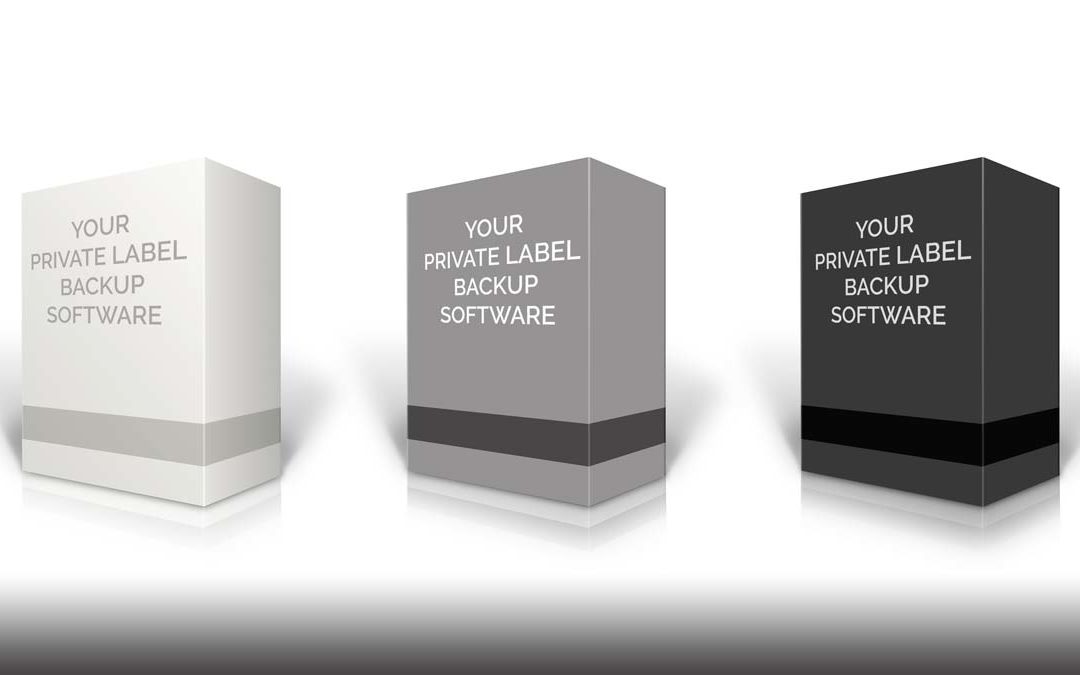
Classifying software: white label? private label? or SaaS?
Classifying Software: White Label? Private Label? or SaaS?
Over the years of working with WholesaleBackup, it was always clear that our mission was to build backup software that our partners (other companies) and ourselves use every day to offer cloud backup services to end-users.
There are many different ways to classify that type of business model and product. Is there a single correct way? … I’m still not sure. Even after many conversations with partners, analyzing web trends, and working in this space. I’ve come to believe that it makes sense for the backup software to be labeled in at least these three different classifications where they overlap one another.
White-Label Software
The term white labeling – essentially means a company will brand a product they did not create but will leverage and sell it to generate revenue.
Private Label Software
The term private labeling – is roughly the same as white labeling, but with slightly more flexibility, where a product would be created to spec by a 3rd party, labeled by a vendor and sold as an in-house label/brand.
SaaS (Software as a Service)
The term SaaS – applies to software and applications hosted by a third party generally in the cloud computing space, who makes them available to end-users over the internet, generating income through a subscription model.
Is WholesaleBackup Meeting the Requirements?
White Labeling?
Yes, to an end-user the backup software can be fully branded from the icon, windows title, installer wizard, license agreements, application name, and more. So an end-user would have no idea that WholesaleBackup created the backup application if an MSP company branded it and distributed it to their customers as an in-house app.
Private Labeling?
Yes, the branding is covered as mentioned above, but can the product be created to spec? Not exactly, everyone gets the same features, but the reason I say ‘yes’ here is that we provide the ability to trim or lockdown parts of the product so that only certain parts are exposed, in addition, we are constantly implementing new features requests from partners, resulting in a user-centered product design cycle.
Is it SaaS?
Yes, it removes the need for an organization to use its own hardware because the data can be hosted by a third party of its choosing in the cloud, does it have flexible payments? yes, the structure allows for a predictable consistent monthly fee while usage of the licenses for end-users is managed by the MSP or organization offering the backup services, with a pay-as-you-go model. Is it scalable? yes, the resources required for backend functionality are generally hosted in the cloud and will scale to meet increasing demands automatically as needed. Automatic updates? Yes. The software will auto-update.
To help clarify more on this topic, I’ve released an article on WholesaleBackup called “what exactly is private label software?“.
Implementing an effective Backup as a Service (BaaS) strategy can streamline the backup process and provide enhanced data protection. To dive deeper into the world of BaaS and understand its benefits, head over to our dedicated page on Backup as a Service Platform for Service Providers. Learn how BaaS can simplify the backup process, reduce complexity, and ensure that your customers’ data is secure and easily recoverable.
In this dynamic landscape of cloud storage, Wasabi stands out as an accessible and economical choice, empowering MSPs to safeguard their clients’ valuable data seamlessly.
